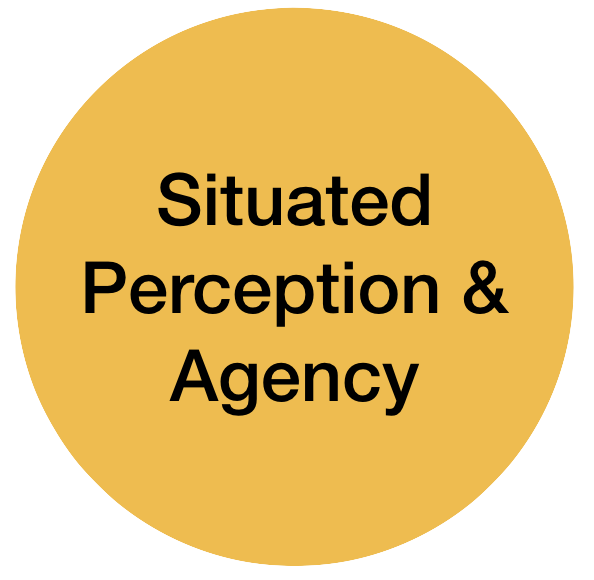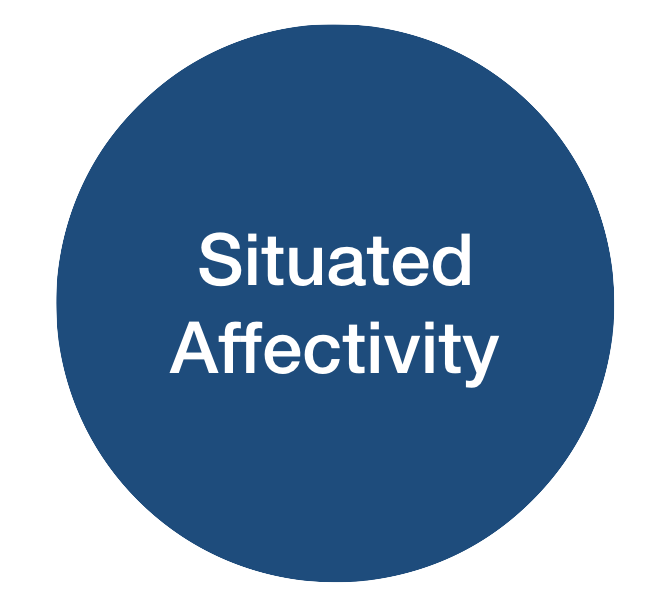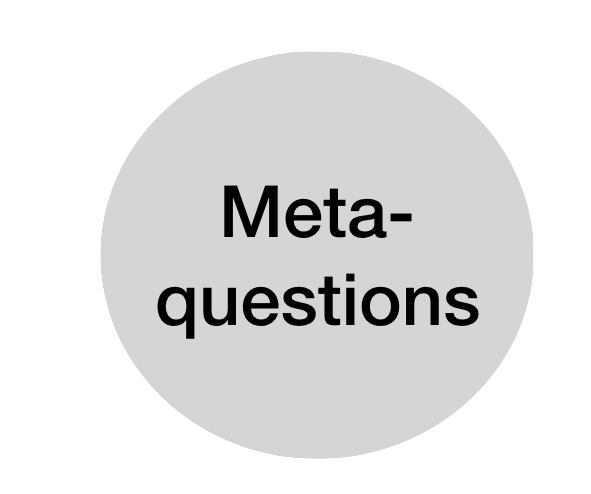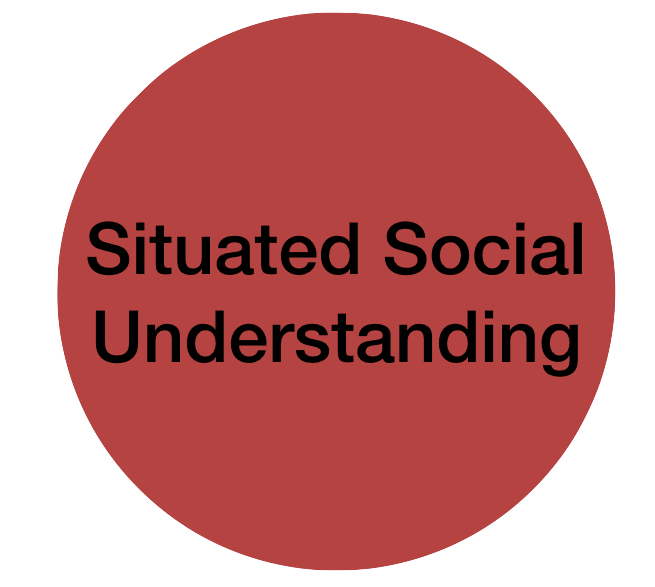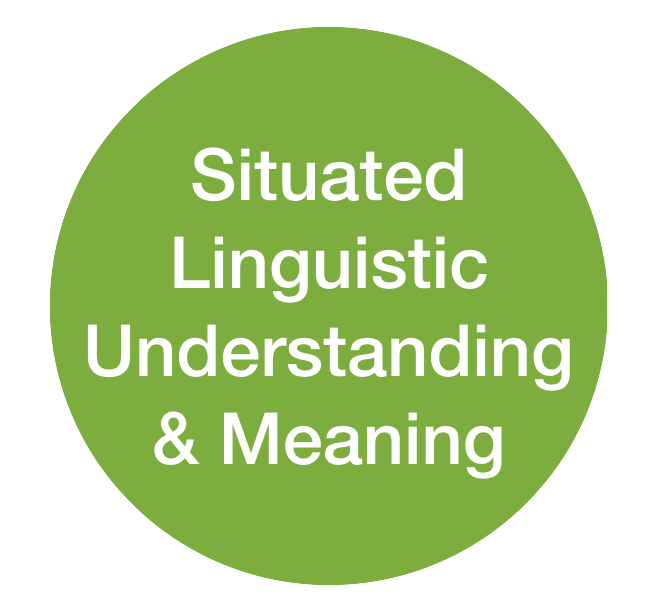
Projects of the First Cohort (2017 – 2020)
Part A: Meta-questions
Project 1: Which notion of representation is adequate in a framework of situated cognition, or can we deal without presupposing representations at all?
PI: Beate Krickel
PhD-student: Matej Kohár
Title: Curing representation-hunger
Description:
Research in situated cognition often diminishes the role of mental/neural representations in explaining cognition. However, the class of “representation-hungry problems” – cognitive tasks which involve responding to distal or non-actual states of affairs and abstract properties resists analysis in non-representational terms. In my project I pool the theoretical resources of the new mechanistic framework of explanation, dynamical systems theory and ecological psychology to provide a working non-representational account of how representation-hungry problems can be solved.
Post-Doc Project: The Causation/Constitution Distinction in the Debate on Situated Cognition
Post-Doc: Beate Krickel
Title: A Change Of Strategy: Analyzing Constitution Rather Than The Mark Of The Cognitive
Description: In the first paper, I discuss how Michael Kirchhoff’s (2015) account of diachronic process constitution and David Kaplan’s (2012) application of the mutual manipulability account of constitutive relevance perform with respect to the CC fallacy and the general demands of extended cognition (EC). I show that both accounts fail but that Kaplan’s account is promising. I suggest modifications to his approach and highlight a challenge that remains for the mutual manipulability approach in the context of EC: we have to find a way to distinguish between task specific constituents and cognitive constituents in order to avoid a trivialization of EC.
Part B: Situated perception and agency
Project 2: Situated theories of perception
PI: Tobias Schlicht
PhD-student: Elmarie Venter
Title: Perceiving Agents: Situated Theories of Perception
Description:
This project assumes the predictive coding framework as a background assumption in the investigation of central features of perception, namely the place and nature of the perceiving agent in its capacity to perceive itself and to perceive other agents. Given that predictive coding provides a popular explanatory framework for perception, this project explores how it can also be applied to self-perception and social perception. In this context, theories of situated perception and cognition, especially their characterization of the cognitive agent (or subject or self), will importantly inform the discussion.
Project 3: Sensory substitution experiments: Testing enacted theories of cognition with experiments on sensory augmentation
PI: Peter König
PhD-student: Nicolas Kuske
Title: Spatial Cognition and Sensory Augmentation in Enacted Theories of Cognition
Description:
Cognition for navigation makes use of spatial relations. Humans employ at least two kinds of reference frames to set up these relations. The egocentric reference frame establishes spatial relations between human body and environment. The allocentric reference frame establishes spatial relations between objects in the environment only. Therefore allocentric relations seem independent of human action, challenging enacted theories of cognition. This project investigates two different coding strategies for allocentric information, focusing on their respective build up and time constraints during recollection. The interaction between these coding strategies is further probed through employment of a sensory augmentation device. In addition, the project explores general perceptual effects of the augmented sensor motor loop.
Project 4: Developing a situated account of personal freedom: The situatedness of decision-making
PI: Sven Walter
PhD-student: Jumana Morciglio
Title: Embodied Self-Control
Description:
Traditional views of self-control presuppose that the self-regulation of behavior is a mental activity that relies on having the right sorts of thoughts or the right sort of perspective. There is, however, an alternative view that prescribes strategies that are more efficient – a view that self-control extends beyond the borders of the mind to involve the body as well. An embodied view of self-control states that the cognitive processes involved with self-control – that is, having the right sorts of thoughts or perspective – is either co-constituted by or co-dependent upon the body. The research that I will be conducting will focus on two main goals: (1) cataloguing various embodied strategies that act as “cognitive shortcuts” (i.e. cognitive processes that bypass executive function) to achieve the right sorts of behaviors, and (2) providing a philosophical account that reconceives the notions of willpower and free will to remove the locus of control from executive function and distribute it amongst more basic cognitive and bodily processes.
Project 5: The neuronal fundaments of the perception-to-action cycle
PI: Onur Güntürkün
PhD-student: Julian Packheiser
Title:
Description:
My research project has the aim to investigate models of cognition (i.e. the sandwich, feedback and the coupling model) on the single neuron level. To do single recordings in behaving organisms, I use the animal model of the pigeon to gain insight into the neural correlate of perception, action and cognition in individual neurons. The project is embedded into the topic of “Situated Cognition” as the models of cognition make distinct predictions about the properties and coding patterns of individual neurons which I will be testing and evaluating during the course of my PhD.
Part C: Situated affectivity
Project 6: Theory of embedded and extended affectivity
PI: Achim Stephan
PhD-student Lasse T. Bergmann
Title: Affectively Situated Moral Cognition
Description: The cognitive processes people utilize in situations which have a moral character have been explored without proper consideration of affective processes. This leaves the field of moral cognition with an incomplete picture of the processes employed. Moral cognition research has mostly considered subjects in an offline setting, i.e. removed from the world. This project aims to put the human back into the world in which they routinely face morally challenging situations. As dynamic continued interactions unfold in the world the situated and affective character of the cognitive processes at work becomes more apparent, revealing them to be much more than just individual, rational and internal processes. The aim is to create a better theory that accounts for the emotional and situated nature of moral cognition.
Project 7: Investigating embodied emotions
PI: Achim Stephan, Ursula Stockhorst
PhD-student: Dali Gamsakhurdashvili
Title: Role of stress and sex hormones in emotional processing
Description:
Since affective disorders, like major depression and anxiety disorders, are much more prevalent in women than in men, biopsychological approaches explore how much female sex hormones, specifically higher in the female body, may be contributing to emotional processing. In my project, I examine effects of changes in the levels of female sex hormones (estradiol and progesterone) during the menstrual cycle on emotion recognition, emotional memory, emotion regulation and expression. I further test the interaction between stress and sex hormones.
Part D: Situated social understanding
Project 8: Theory of situated, especially enacted social understanding
PI: Albert Newen
PhD-student: Julia Wolf
Title: The role of situated and cognitive factors in the development of social cognition
Description:
The main aim of this project is to provide an account of the development of social cognition in children in terms of both situated and cognitive factors. In the existing literature there is considerable debate concerning the development of social cognition, in particular whether social cognition is an early developing or late developing ability. A central element of this debate is the experimental finding that children succeed implicit False Belief Paradigms long before they succeed in explicit false belief paradigms. Contributing to this debate I consider the role played by situated and cognitive factors in the development of social cognition, and how these might relate to each other. This will be done using the mental files framework (Perner & Leahy, 2016).A particular aspect I want to explore is how situated factors might facilitate cognitive development.
Project 9: Investigating social understanding in action contexts: Visual cliff experiments
PI: Silvia Schneider
PhD-student: Samantha Ehli
Title: If Looks Could Talk – Clarifying The Role Of Social Referencing
Description:
In daily life, infants are often faced with ambiguous situations. Literature suggests that during these situations, infants usually increase their looking behaviour towards social partners (social referencing, SR). The ‘situated cognition’ framework claims that infants’ SR varies with social context features, such as familiarity of the social partner. Accounts, like the social-cognitive account and the co-regulation account, about the functions of SR diverge in their predictions on how familiarity influences infants’ SR. Our aim is elucidating SR’s function in infancy by examining SR patterns, affectivity and exploratory behaviour in situations of different levels of threat and with social partners of different familiarity.
Part E: Situated linguistic understanding and a situated theory of meaning
Project 10: Theory of situated linguistic meaning
PI: Markus Werning
PhD-student: Guido Robin Löhr
Title:
Description:
In my dissertation I develop a theory of abstract concepts and abstract language. The question of how we are able to think about abstract ideas like love, knowledge or truth have hardly been researched, neither in philosophy, nor psychology, but especially in recent years a small psycholinguistic literature has begun to investigate especially how we process abstract words. I discuss this research and the underlying theories and argue that much of it is based on a mistaken theory of concepts.
Project 11: Investigating the situatedness of metaphors
PI: Nikola Kompa
PhD-student: Benjamin Angerer
Title: The Role of Spontaneous Metaphor in Mathematical Thinking
Description:
My project investigates the role conceptual metaphors play in grounding mathematical thinking in more concrete concepts and embodied experience. While preceding investigations of metaphor in mathematics have mostly concentrated on discussing well-established metaphors in mathematical discourse and textbooks, this project aims to provide an insight into use of metaphors as they spontaneously occur when people try to understand and solve new problems, including unsuccessful and flawed attempts at metaphor use. Thereby, the project strives to contribute to a theory of the cognitive mechanisms underlying metaphor production and comprehension, and more generally, to the debate surrounding the grounding and situatedness of abstract thought.
Project 12: Investigating the situatedness of linguistic understanding: the perceptual basis of word meaning acquisition
PI: Jutta L. Müller
PhD-student: Samuel H. Cosper
Title: The Perceptual Basis of Word Meaning Acquisition
Description:
My project investigates linguistic understanding within embodied cognition by focusing on the influence of modality-specific referential cues on infant word learning. In the past, word learning experiments have focused on the visual modality, whereas my project focuses on the auditory modality. Findings will be used to acknowledge and integrate sensory experience more explicitly in word learning and semantic theory, especially as it pertains to embodied semantics.
